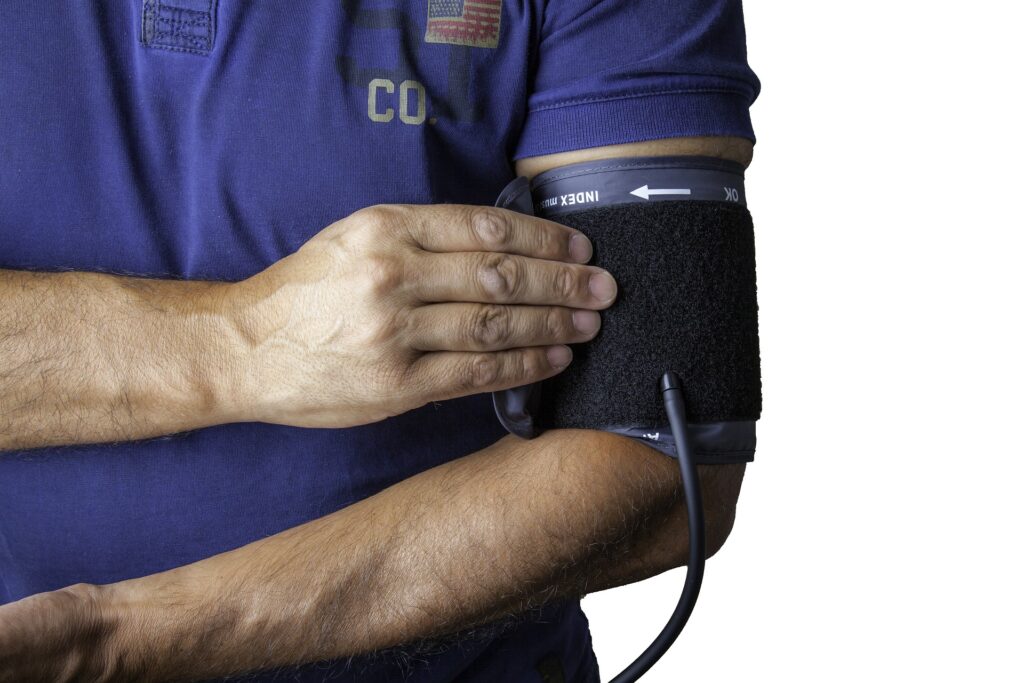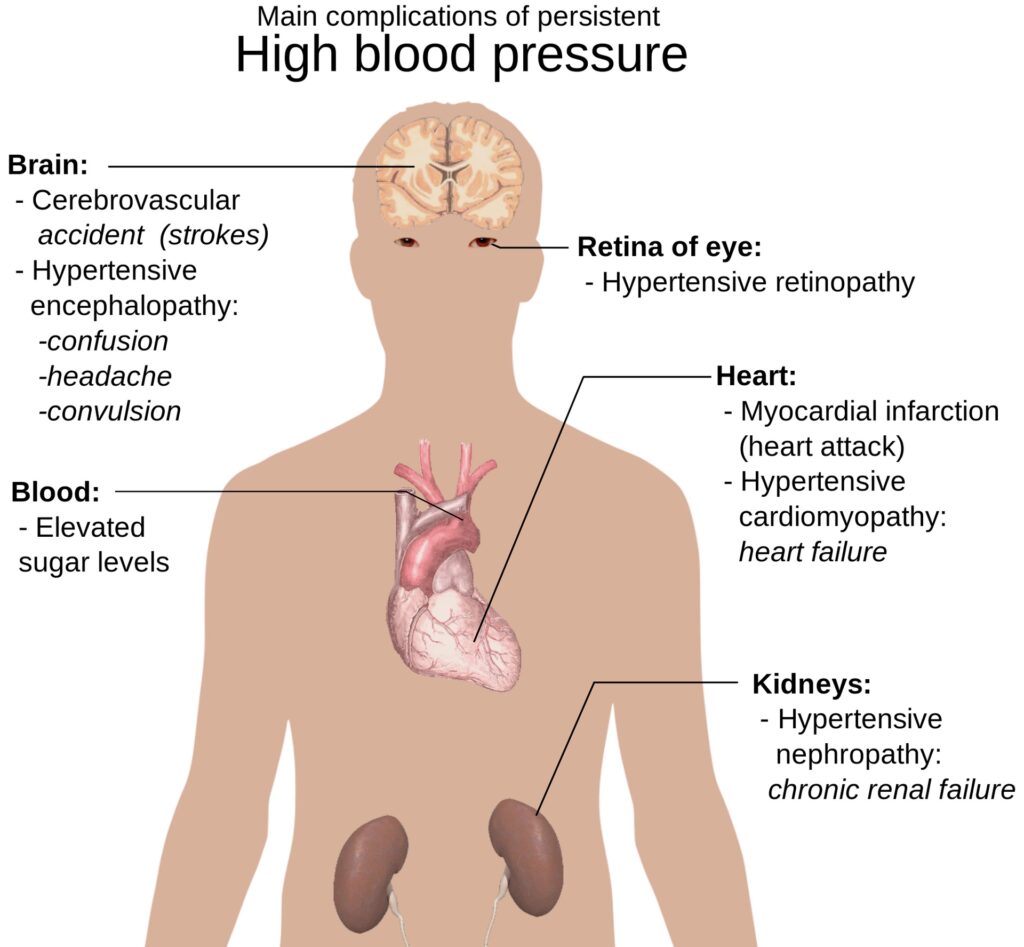An Inside Job: Why High Blood Pressure Is Called “The Silent Killer”, And What To Do About It
Posted by: Men's Health Boston in Uncategorized on November 15, 2022
High blood pressure, a condition known medically as hypertension, is a massive drain on both the health and the economy of the U.S. According to CDC statistics, hypertension affects roughly half of the adults in the U.S., totaling nearly $131 billion dollars per year in treatment costs.
As one of the dominant drivers for long-term cardiovascular risk, blood pressure presents an attractive target in preventative medicine. It’s well-established that lowering blood pressure significantly reduces a person’s risk of suffering a heart attack, a stroke, heart failure, and death from any cause.
So, if we know that high blood pressure is a widespread problem, and we know that controlling blood pressure yields really favorable results, how can it be that we still have such a hard time treating the condition? How did it earn its nickname as “The Silent Killer”?
The answers to these questions are complicated, but at the heart of the issue is the fact that hypertension often does its damaging work slowly, quietly, over multiple years or decades. By the time someone “feels” the results (chest pain, heart attack, stroke, etc.), the damage is already done. And despite advances in modern medicine since the 1960s, the survival rate for heart attacks still hovers around 90%, meaning 1 in 10 heart attack victims won’t survive the event.
At Men’s Health Boston, we believe strongly that educating patients leads to empowerment. So, in this month’s blog post, we want to discuss hypertension in-depth: what it is, how it wreaks havoc on the heart and blood vessels, and how small changes can make a BIG difference in reducing your long-term risk of complications.
What exactly is “Hypertension”?

At the most basic level, blood pressure is the amount of force exerted upon the walls of your blood vessels when the heart beats. This pressure is important, because it’s what allows oxygen and other nutrients to be pushed out to tissues all over the body. Imagine an engine sputtering as it struggles to get enough gasoline; if the pressure is too low (aka “hypotension”), organs won’t receive fuel fast enough to do their jobs properly, which can send the body into shock.
But it’s a delicate balance, because too much pressure causes damage to the cells along the wall of the blood vessel. Consider, for example, using a power washer to clean the siding on a house. The goal is for the water pressure to exert enough force to clear away dirt and debris. But get too close and the force of the water can start to chip away the paint, or even bust through the siding.
A similar phenomenon can occur in hypertension, where the force of the blood pushing against the wall of the arteries is abnormally high. Over time, this can cause significant damage to the inner lining of the vessel, called the endothelium.
How does high blood pressure affect your heart and arteries? What are the long-term consequences?

The endothelial cells lining your blood vessels play a critical role in regulating the flow of blood around your body. Amongst their many jobs, these cells are responsible for releasing chemical signals that allow the arteries to relax and expand to let blood pass through, or to tense and contract in order to push blood in another direction. This complicated interplay of vasoconstriction and vasodilation steers blood towards the areas of the body where it is needed most.
For example, in order to achieve erection, blood flow needs to be diverted into the penis. To do this, a signaling molecule called nitric oxide (NO) is produced by endothelial cells in the arteries of the penis, causing them to relax and widen, or dilate. This is why many of the drugs designed to treat ED are known as “vasodilators”. They help to relax the vessels of the groin to allow for increased blood flow.
There is some debate as to whether hypertension is the cause or the consequence of dysfunctional endothelial cells. However, it’s abundantly clear that once you have elevated blood pressure, bad things ensue:
- Inflammation in the arteries increases substantially. Blood platelets are more likely to stick to the walls of the vessels, raising risk of blood clots and cholesterol build-up. Blocked passageways can lead to interruptions in blood flow, causing heart attack or stroke.
- Arteries stiffen, losing their ability to relax properly. This, in turn, increases blood pressure further. Over time, the vessel walls can weaken under the pressure and bulges (called “aneurysms”) can form, increasing risk of a rupture.
- Narrowed or weakened blood vessels in the eyes, brain, and kidneys can lead to long-term damage such as kidney disease, loss of vision, or dementia.
- Increased resistance from stiff arteries causes the heart to work harder to pump the same amount of blood. Increased strain on the heart can make the muscle grow larger and weaker, potentially progressing to heart failure.

Researchers have estimated that it takes an average of 14.1 years for high blood pressure to develop into heart failure. For most of those preceding years, people don’t necessarily “feel” any different. If you only go to the doctor when something “feels off” or when a noticeable change occurs, you’re unlikely to realize that your blood pressure is elevated on a day-to-day basis.
This quiet erosion of the cardiovascular system, resulting in deadly consequences such as heart attack, stroke, and ruptured aneurysms, is what has earned hypertension the nickname “The Silent Killer”. Without regular check-ups, by the time you recognize something is wrong, you may be fighting for your life.
Who is at-risk for high blood pressure, and how do you find out if you have it?
While the exact progression of hypertension is still up for debate, most experts believe it arises from a combination of genetic and environmental/lifestyle factors.
We know that men are more likely than women to develop high blood pressure, especially before the age of 60. We know that rates of hypertension are highest in the non-Hispanic Black community. We also know that having a close family member who developed high blood pressure before age 60 doubles your personal risk, and that certain chronic conditions like kidney disease and sleep apnea elevate risk further.
However, there also seem to be behavioral and environmental factors at play, and improvements in lifestyle can lower risk substantially. Best practices include:
- Maintaining an active lifestyle (with at least 150 minutes of movement per week)
- reducing high salt diets (below 3g of sodium daily)
- moderating alcohol consumption
- smoking cessation
- sustaining a healthy bodyweight
In addition, poor sleep habits are increasingly being linked with the development of high blood pressure. The very best way to monitor risk of high blood pressure is to establish a relationship with a physician you trust, and maintain a regular schedule of annual check-ups.
If you get diagnosed with “hypertension”, what should you do?
While hypertension can feel like a scary diagnosis, it’s important to know that with proper management, it is by no means a death sentence. Many of our patients at MHB maintain a healthy, fulfilling lifestyle through proper management.
Advanced cardiac testing capabilities available right in our Chestnut Hill office allow us to quantify health risk and design personally-tailored treatment plans. We utilize a two-prong approach including targeted medication management paired with nutrition and lifestyle support to help our patients achieve sustainable, lasting changes.

How can I schedule a consultation?
Our goal is to keep you happy, healthy, and fit to enjoy all the important moments life has to offer. If you are diagnosed with hypertension, the sooner you seek help and create a management plan with your doctor, the better your outcomes will be.
If you are concerned about your heart health or have associated risk factors, we can help. For more information on our world-class cardiology care at Men’s Health Boston, click here. For a clinical evaluation, call our office or request an appointment with Dr. Evan Appelbaum and his expert team today.

